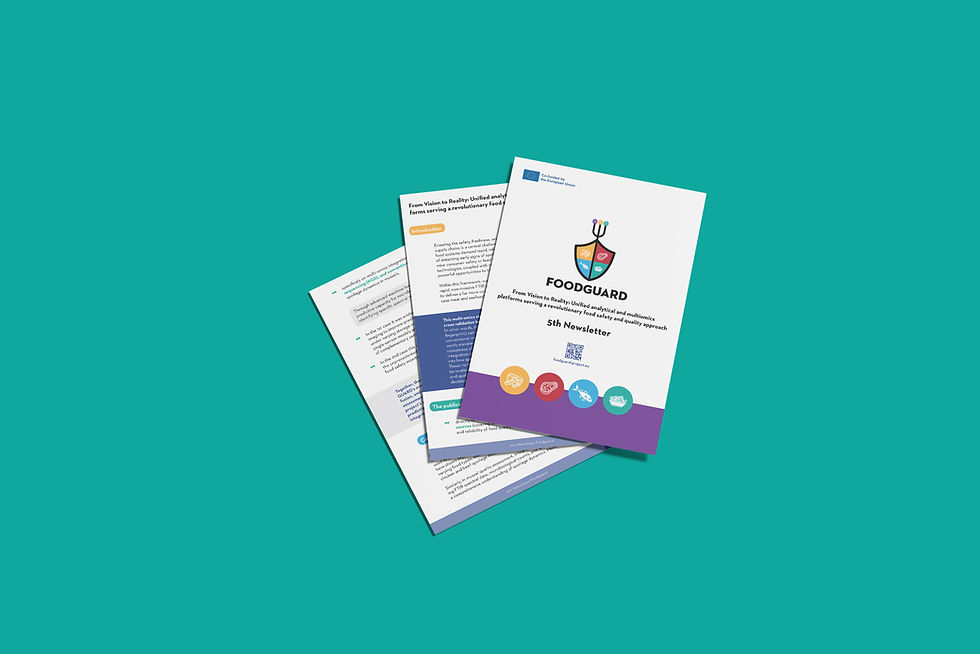Interview of Dr. Nychas, FOODGUARD's Coordinator, in Naftemporiki
- Designature Community
.png/v1/fill/w_320,h_320/file.jpg)
- Apr 15, 2024
- 2 min read
Updated: Oct 29, 2024
In an interview on the online channel of Naftemporiki, the project coordinator presented FOODGUARD project. His insights regarding the urgent problems of food loss and food waste that plague our global food systems were invaluable. As sustainability became a prominent topic of conversation, the interview explored the complex interplay between these ideas and illuminated how FOODGUARD is positioned to revolutionise the food safety industry.
He highlighted FOODGUARD’s aim which is to develop and demonstrate co-created solutions that will support innovations & advances based on microbiome, microbial activities & technology hubs to address food, health, economic and environmental challenges. The envisioned approach consists of a framework of toolsets & methodologies to provide sustainable solutions in food processing, and packaging & across the food value chain to address food shelf-life increase & waste reduction in a holistic manner. The proposed solutions aim to (a) extend food shelf life with novel packaging/ biopreservation i.e. use of protective cultures/synthetic microbial consortia, recyclable films with natural antimicrobials or protective cultures;(b)monitor food quality/safety/shelf life with microbial indicators/molecular biomarkers used in smart packaging (TTIs, smart printed tags, no-invasive sensors)& (c) accurately predict food shelf life & improve traceability using predictive models, AI/ML, Internet of Things & tools like QR, NFC etc.; FOODGUARD toolbox components will be extensively evaluated in real life settings through four pilot demonstrations in 4 different countries with involvement of all relevant actors while covering diverse requirements and different food products. FOODGUARD outcomes target i) to minimize food loss and waste by shelf life extension and prediction, ii) to help the food industry implement these preservation solutions as an alternative to chemical preservatives, iii)to deploy responsive policy for implementing these approaches as well as to engage consumers educated via tools/ platforms, effectively improving awareness &trust in the food sector to(iv)increase traceability, providing real-time supply transparency that will improve the uptake of data-driven innovations in food systems, optimize resource efficiency (reducing food waste from farm to fork)(v)manage increased complexity in agri-food production & supply chain process, make it easier for consumers to adopt a healthy & safe food diet.




